Can Donald Trump really tame the dragon?
Hong Kong is in the next stage of its fearsome drama. What looms is a tragedy for a magnificent city.
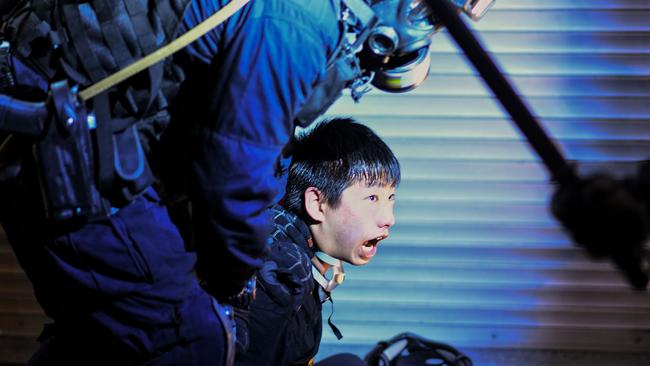
The evidence is that they do. But the sense is building that this dramatic conflict, this dramatic set of conflicts, may be heading for a crisis point. Mainland Chinese officials are increasingly explicit in their threats. Liu Xiaoming, Beijing’s ambassador to London, says his government could “swiftly quell unrest” in Hong Kong. He and other Beijing officials said the regime would not “sit on its hands”.
Yet Donald Trump, amid a flurry of sometimes confusing interventions, told Chinese President Xi Jinping via Twitter that if Beijing wants a trade deal with the US, it will need to handle the Hong Kong situation humanely.
Trump’s National Security Adviser, John Bolton, made the same point but much more bluntly, as is his way. He pointed out the plain truth to Beijing: if they behave too harshly in Hong Kong there will be hell to pay in the American congress.
This is less Bolton making a threat than stating the obvious, but just to make sure Beijing didn’t misunderstand him, Bolton elaborated: “The mood in congress is very volatile at this point, and a misstep by the Chinese government, I think, would cause an explosion on Capitol Hill.”
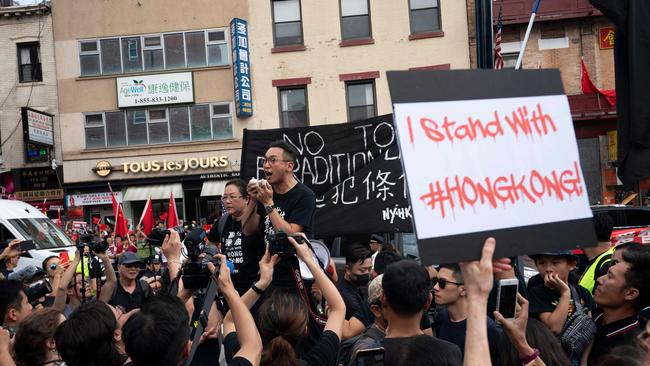
If Hong Kong does blow up, it will be a tragedy for the seven million incredibly brave people of that magnificent city, but it will also have global geo-strategic and economic consequences.
The crisis of the protests will soon stretch into three months. Originally the protests were about a plan by the Hong Kong government to introduce a law that would have allowed Hong Kong citizens to be extradited to mainland China to face the legal system there. The problem is that everyone in the world knows the Chinese legal system is no good. With its conviction rate of more than 99 per cent, the Chinese legal system has no credibility with anyone. To routinely expose Hong Kong citizens to its vagaries would have been a severe blow to the rule of law and to their legal rights.
Hong Kong is an amazing place. It is often rated the most economically free jurisdiction in the world, yet it sits as part of the sovereign territory of the biggest socialist nation in the world, ruled by the biggest Communist Party in the world.
Since Beijing took control of Hong Kong Island and Kowloon and the New Territories, it has slowly whittled away many of the freedoms Hong Kongers traditionally enjoyed. And it never introduced the universal suffrage and internal democracy it promised to gradually get to in the 1997 agreement. But, overall, Hong Kong has maintained many of its freedoms and much of its way of life.
This achievement reflects well on the people of Hong Kong, who made it work, the civil service, who generally administer it well, and on Xi’s predecessors as rulers of Beijing, who had the wit to move slowly and with, by Beijing standards, a relatively light touch.
What has changed?
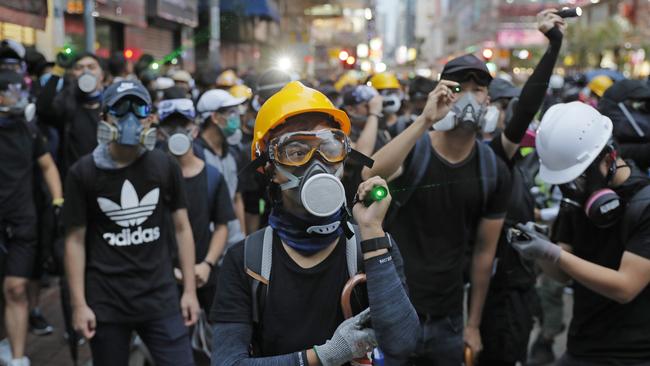
Three separate dynamics have collided like billiard balls in this Hong Kong controversy. The first is the growing sense of the Hong Kong people that they are the metaphorical frog in the slowly boiling pot of water. They realised the temperature was getting too hot. The extradition treaty made them understand that. It was a clumsy move by the lightweight chief executive of Hong Kong, Carrie Lam.
Incidentally, some surely ridiculous inspired reporting has held recently that perhaps Beijing was not aware that Lam was going to introduce this extradition law. That ludicrous idea is encouraging if it is being briefed out by Beijing-related sources, as it suggests Beijing will want to put all the blame for this mess on the Hong Kong government.
But extradition treaties have been a central tactic by Beijing in recent years to increase its leverage over the Chinese diaspora. In any event, the extradition treaty convinced a lot of Hong Kongers that they had to take a stand now for the rule of law and for the preservation of some level of democracy.
The people of Hong Kong are practical yet idealistic too. But above all they are brave. This looks like Hungary in 1956 or Prague in 1969. This is a yearning for freedom innate to the human spirit. The people of Hong Kong are heroes of democracy.
Every human being on the planet who values freedom and human dignity today feels a solidarity with the people of Hong Kong.
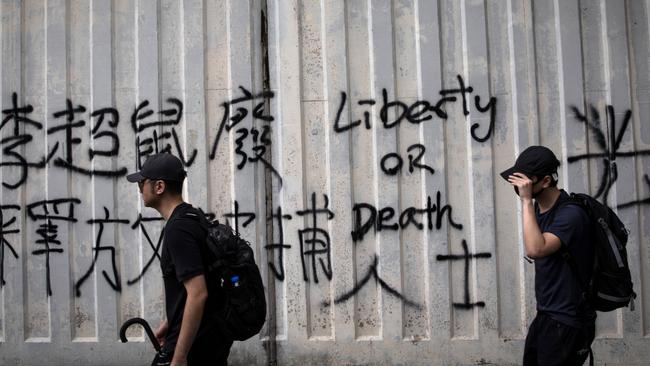
Of course, the demonstrators have made mistakes. The actions at the airport were ill-advised and the violence very dangerous. The demonstrators distressed innocent people and there was an ugly edge of vigilante violence about the way they manhandled and even beat a couple of men they thought were mainland Chinese agents.
The striking thing about these incidents is how isolated and rare they were in what overall has been an extremely disciplined, nonviolent series of demonstrations. There has been no looting of shops, almost no random violence, and property violence has been limited and aimed at symbolic targets. And all this in a movement that has managed at its peak to turn out two million people, and has equally sponsored hundreds of flash demonstrations, which emerge in a minute and dissipate in a minute.
Overall, the Hong Kong police have been relatively restrained as well, though there has been some footage emerge of police violence. Worse violence has come from professional thugs assumed to be agents hired by mainland forces.
Meanwhile, Beijing has assembled hundreds of police and paramilitary transport trucks next door to Hong Kong in Shenzhen, in the apparent purpose of intimidating the demonstrators.
Which brings us to the second big dynamic at work in Hong Kong, and that is the personality and leadership style of Xi. At a recent Australia America Leadership dialogue, Kim Beazley shattered the silly, lazy rhetorical equivalence some commentators engage in. Trump’s departure from the American strategic mainstream, he rightly said, was as nothing compared with Xi’s utter demolition of the old Chinese model, characterised by Deng Xiaoping’s famous formulation “hide your strength, bide your time”.
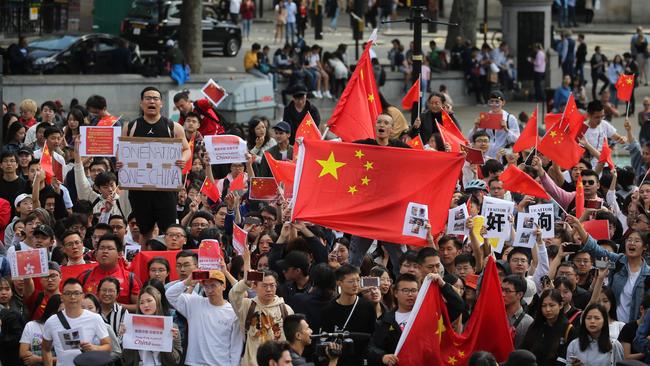
Under Xi, China has lost all the old institutionalism so gradually built up after Mao Zedong, lost all the impetus for liberal reform of any kind, lost all sense of incremental political improvement. It has become instead a one-man dictatorship with soaring power ambitions, resting on three pillars — strongman leadership, economic growth and virulent nationalism.
It is impossible now to sell to anyone, least of all the people of Hong Kong, the idea that the People’s Republic of China will gradually become a kinder and gentler nation, that it is on a long, slow road to a more liberal and representative future. The failure to comprehend the centrality of ideology in the modern Chinese government is a crippling lack of imaginative insight in a whole tradition of Western thinking about China, from Henry Kissinger down.
It is true that Beijing is clever and rational and can compromise. But whereas much of the West seems to have lost all belief in anything beyond immediate comfort, Beijing is powered by ideological, nationalistic and leader-centric ambition. One of these ambitions is to subjugate all of what it considers to be the Chinese universe — mainland China including Tibet and Xinjiang, Hong Kong, Macau, Taiwan and the vast Chinese diaspora, into one multinational entity called China and ruled by the Chinese Communist Party.
No final decision on what to do in Hong Kong will be taken below Xi’s level. He has four broad alternatives. One is to get the local Hong Kong leadership to negotiate and settle with the demonstrators. This is difficult in part because the demonstrators do not have a well-defined central leadership. But there are trusted democratic politicians who might do the job.
The terms of the settlement would have to include the total, formal withdrawal of the extradition law, reduced charges or amnesty for almost all the arrested demonstrators, probably the resignation of Lam, some kind of investigation or dialogue about how it all went so wrong, and some further political democratisation. This is all pretty unlikely but it is where enlightened leadership would go.
Option two for Xi is to more or less do nothing. Just let the local government take the heat and the local police battle the demonstrators. University goes back into session next month. Hong Kong people, though idealistic, also value being able to earn a living and the longer the demonstrations go on the more they will hurt Hong Kong’s economy. There is also the possibility that the demonstrators may make a big misjudgment that decisively swings public opinion against them. This alternative has its appeal.
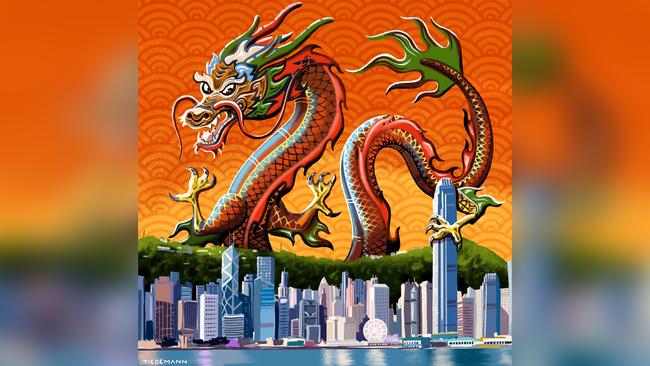
Option three would be a full Tiananmen massacre-style crackdown. This would have terrible costs but it would establish once and for all that Beijing was the boss of Hong Kong. It is not immediately likely but it is not to be ruled out altogether.
Option four is what you might call a hybrid-war, grey-zone conflict kind of response. If Beijing believes the local police cannot get a grip it could send in not the army but the People’s Armed Police. Beijing, like Moscow, has mastered grey-zone conflict in recent years. This is where it takes military action but below the level that would trigger US intervention. Russia did this in Crimea in part by using Russian soldiers loosely disguised as civilians or mercenaries. Beijing did this in the South China Sea by using naval vessels loosely disguised as coastguard or even civilian vessels. These were nonetheless powerfully enough armed to push out Southeast Asian navies. But they were not so obviously a military force as to seriously risk US military involvement.
This model or analogy doesn’t fit perfectly in Hong Kong but you could imagine Beijing bolstering the Hong Kong police, which at 31,000 is by no means a huge force, but yet not going past that point Bolton alludes to that triggers massive US congressional retaliation.
Which brings us to the third powerful dynamic at work in Hong Kong, and that is Trump.
Truly, Trump is a phenomenon of our times. His critics cannot see the good that he does; his supporters cannot see the bad that he does. In fact he does an awful lot of good and an awful lot of bad.
One of his least remarked and least understood qualities is his prudence, disguised by the most exaggerated rhetoric of any president on record. But after two years of Trump, the only military action of his that you might describe as discretionary was to lob a few symbolic missiles into Syria. He threatens fire and fury, but he is ultimately prudent about not producing the most dramatic conflict. Except in very rare set speeches, Trump seldom makes a big deal out of human rights. This is disappointing because America’s president is typically a kind of secular pope who gives moral leadership to the world. The absence of that moral leadership is a loss for the world.
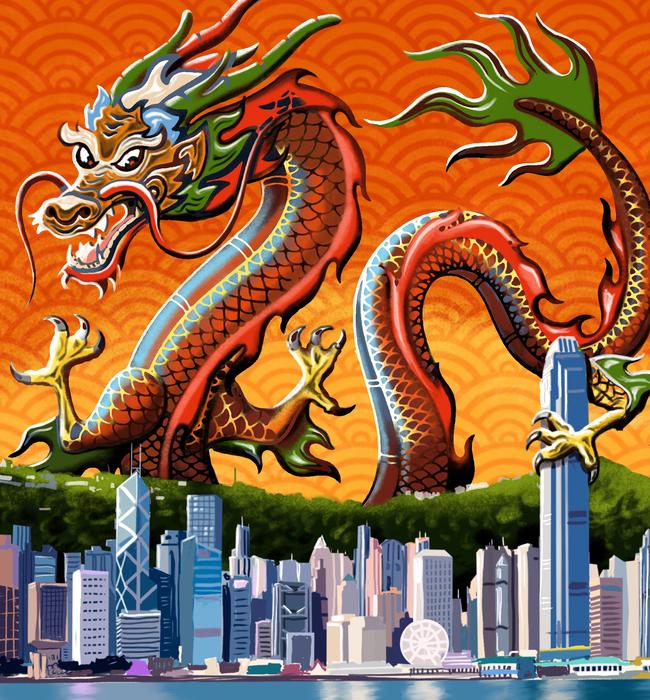
But there is also a prudent and almost moral element to this on Trump’s part. He is not going to give international dissidents a false promise of American support, only to let them down when push comes to shove. Or, from the US point of view, he is not going to get needlessly entangled in other people’s internal conflicts.
At the same time, he is ever alert to when circumstances provide him an opportunity and he is also alert to when US public opinion more or less forces him to take some kind of stand. His early remarks on Hong Kong were very low-key, at one point describing demonstrations as a “riot”, thereby using Beijing’s preferred term.
His language, perhaps governed by his deep prudence in a situation of real danger as mentioned above, was consistently low-key and, as Scott Morrison would say, “de-escalatory”. But Trump also urged Xi to meet the Hong Kong demonstrators personally and expressed confidence that Xi could sort the matter out humanely.
This was a kind of humiliation for Xi, as if he needs advice from Trump on an internal Chinese matter. But also, the fact Xi never could take such an initiative points up a weakness for a dictator compared with a democratic ruler. Trump went further and suggested the two leaders — Trump and Xi — meet personally to sort the Hong Kong situation out.
Again, this is a kind of intense, polite humiliation of Xi. It’s polite, but it implies Xi cannot handle his own country. It injects Trump into the middle of the psychodrama. Yet Xi can hardly spit in Trump’s face over the suggestion. I think Trump drives the Chinese half crazy.
Trump’s on-again off-again tariffs on China are disruptive to international business. But Trump’s complaints about Beijing’s trade practices, cyber thefts and security attacks under the guise of free trade are completely justified. It is certainly maddening for international business that Trump announces tariffs on China, then partly relents, postpones some of them, cancels others, goes ahead and implements some. But the hard-headed net assessment must be that Trump has so far had huge success in his trade war with Beijing.
Trump’s actions and words have already resulted in a significant diversion of supply chains away from China, especially in hi-tech areas. They have also resulted in significant diversion of foreign investment and manufacturing facilities to other destinations such as Vietnam. Trump has also produced a pretty much global consensus, even among his enemies and critics, that Beijing’s actions in trade, cyber theft, etc are unacceptable. He has comprehensively convinced the American public and his political opponents, the Democrats, of this.
As unpopular as Trump is, he has therefore been much more effective in mobilising strategic public opinion on China than Barack Obama ever was.
It is also the case that Chinese economic growth has slowed markedly in the face of Trump’s actions. Trump has imposed a price on Beijing for its behaviour, again in a way that Obama never did.
And finally, Trump may well have produced this situation in Hong Kong. He certainly did not do this through any mad “black hand” conspiracy theory of the type the Beijing authorities are putting around. The Hong Kong protesters have an acute sense of Beijing’s power, but also its weak points and its vulnerabilities. The Hong Kong demonstrators thoroughly understand that Beijing for the moment, and only up to a point, is hemmed in by its dispute with the US and the ever present threat of an outraged US congress taking severe action.
Of all the international leaders, I think Japan’s Shinzo Abe, India’s Narendra Modi, Israel’s Benjamin Netanyahu and Australia’s Morrison understand Trump best and get the best results out of him for their respective nations. Morrison’s words on Hong Kong have been sober, sensible and principled. Similarly, his position on the US-China trade dispute has sought to protect Australia’s interests, which are slightly different from America’s, while recognising the merit of Trump’s complaints.
What happens in Hong Kong will affect the whole world, including Australia, which has 100,000 citizens living there. The Hong Kong people are the central actors in this drama. But the other lead roles are played by Xi and Trump. This is a heavyweight production.


Hong Kong this weekend moved into the next stage of its fateful, fearsome drama. There is a new demonstration today, not at the airport but downtown. Its organisers want it to be big, with hundreds of thousands of participants. After the violence and chaos at Hong Kong’s airport this week, do the conservative middle class of the territory still support the demonstrators?